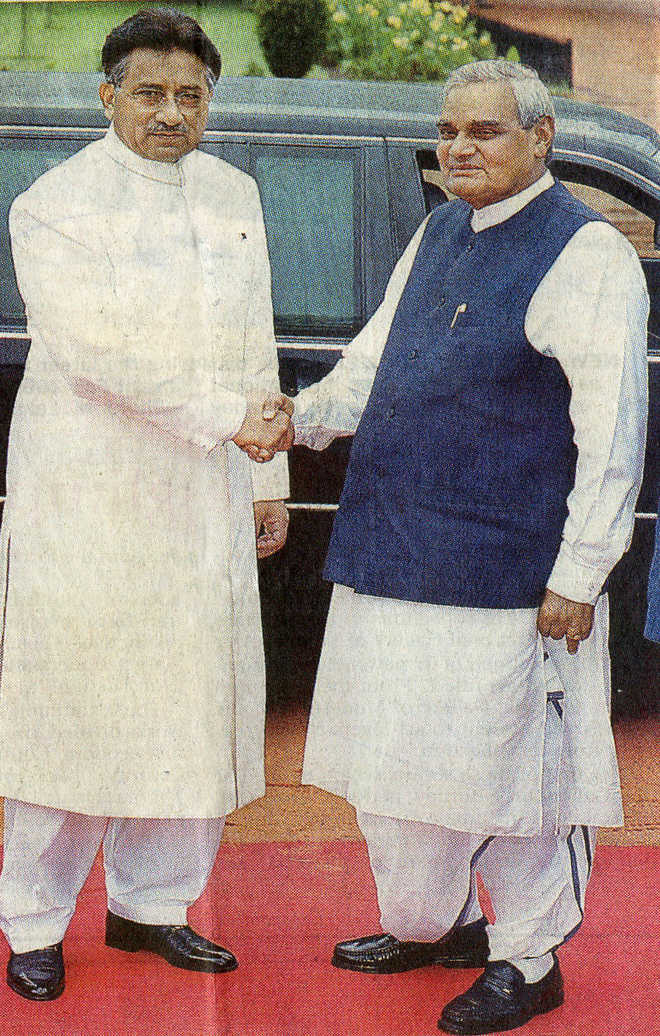
KC Singh
Former Prime Minister Atal Bihari Vajpayee’s passing stirs memories and of multiple occasions when my professional fate was shaped by his commands. In 1976, back from my first posting to Egypt, Shyam Saran, then Under Secretary (FSP), told me to lie low till they decided my deployment. Per chance I asked him if Regional Passport Officer, Chandigarh, was open. Mr Saran’s eyes lit up, he steered me into Additional Secretary’s room to obtain an instant nod. I then discovered that then External Affairs Minister AB Vajpayee had been pestering the administration to send young direct recruits to passport offices as image of the ministry depended more on their performance than ‘day to day’ diplomacy. I spent two fruitful years covering all of Punjab, Haryana and Himachal Pradesh, later opening Jalandhar office for western Punjab.
Two decades later, when Mr Vajpayee became the PM in May 1998, I was appointed to the coveted post of spokesman and Joint Secretary (XP). Within days came the nuclear tests followed by retaliatory ones by Pakistan. At Shastri Bhawan we faced a media frenzy. But the PM and his office left me alone to brief and tailor the message. PM Vajpayee believed in the principle of ‘select, trust and delegate’.
Three visits stand out which shaped my understanding of the Vajpayee’s magic. Western countries were touting the flashpoint fear between India and Pakistan. The global attention thus shifted to the first face-to-face encounter between PM Vajpayee and Pakistani PM Nawaz Sharif in Colombo, on the sidelines of the 10th SAARC summit on July 29, 1998. I found PM Vajpayee in his suite surrounded by PMO officials and Foreign Secretary K Raghunath. With minutes left for the summit, they told the PM there was a stalemate. Vajpayee, unflappable in a moment of crisis, entered with his delegation and as both sides sat down turned to PM Sharif and suggested a tete-a-tete sans their teams. Mr Sharif immediately agreed as Vajpayeeji had correctly surmised that presence of Pakistan foreign minister Gohar Ayub, son of late Gen Ayub Khan, was constraining Sharif due to his minister’s closeness to the military. That broke the stalemate, albeit as future showed, success was transitory. The Lahore declaration, however, provided the template for cooperation in nuclear risk reduction.
Pakistan tried, with South Africans unwisely meddling in the Kashmir issue, at the Durban NAM summit to queer the pitch for India. But Vajpayee swallowed the betrayal. He threw the diplomatic dice again by suggesting a bus trip to Lahore in February 1999.
Unfortunately, Vajpayee’s leap of faith only led to the Kargil adventure, planned and executed by Gen Pervez Musharraf. But Vajpayee never gave up the quest for peace, even though he confronted the same General Musharraf who had undermined the Lahore visit by the Kargil escapade but deposed Sharif and exiled him. An invite was sent to Musharraf, who used it to quickly legitimise his power grab, to visit Delhi and Agra in July 2001. But Musharraf by playing to the gallery and assuming that like a commando, which he was, he could overrun the Vajpayee camp as India could not afford a failure, invited a rebuff. To Musharraf’s surprise, Vajpayee dug in with the same tenacity that he showed in seeking peace, although he conveniently used hawkish cabinet colleagues like Advani and Sushma Swaraj to justify his move.
The 9/11 attacks on the US in 2001, followed by a horrendous terror attack on Parliament in December again ratcheted up the Indo-Pak tension. Vajpayee, embarrassed and angry by the serial betrayals, ordered the Army’s mobilisation. He could not go further as the US begged India not to allow Pakistan the excuse to move forces back from their western front, where it was pushing them to catch the fleeing leadership of Al-Qaeda and Taliban. He kept troops at the border but did not launch any “surgical strike” despite public opinion baying for it.
He took one last jab at engaging Pakistan when he agreed to attend the SAARC summit in Pakistan in 2004, after obtaining a public commitment from President Musharraf that Pakistan will not allow its territory to be used for aiding and abetting cross-border terrorism. Though he lost power but left his successor the groundwork for further engagement.



























